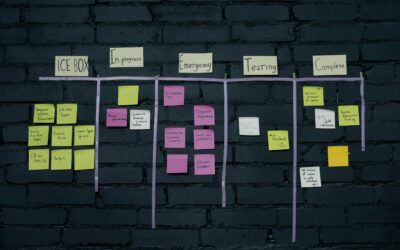
In the ever-evolving landscape of business, the integration of AI technology into project management is not just an innovation but a necessity. As organizations strive to enhance efficiency and optimize operations, AI project management tools are becoming pivotal in shaping the future of work. Here’s what you need to know about incorporating AI into your project management practices.
The Rise of AI in Project Management
Artificial Intelligence (AI) has been transforming industries across the board, and project management is no exception. AI in project management involves using intelligent systems to automate routine tasks, predict project outcomes, and provide data-driven insights. This shift is enabling project managers to focus on more strategic aspects of their roles, such as decision-making and leadership.
How AI is Revolutionizing Project Management
- Enhanced Decision Making:
AI tools integrate vast amounts of data and use machine learning algorithms to provide actionable insights. This capability allows project managers to make informed decisions quickly, reducing risks and enhancing project outcomes. - Improved Efficiency:
By automating administrative tasks such as scheduling, time tracking, and resource allocation, AI helps in saving valuable time and reducing human error. This automation ensures that project managers can concentrate on more critical aspects of project oversight. - Predictive Analytics:
One of the most significant advantages of AI in project management is its ability to predict the future course of a project based on historical data. This predictive capability can forecast potential setbacks, allowing teams to mitigate risks proactively. - Real-time Collaboration:
AI-powered project management tools facilitate better communication and collaboration across teams. These tools can suggest the best team composition for a project and identify communication gaps that might affect project execution. - Customized and Adaptive Learning:
AI systems can adapt and learn from the ongoing project, making recommendations for process improvements. This continuous learning loop significantly refines project strategies over time, adapting to the unique challenges and requirements of each project.
Implementing AI in Your Project Management Strategy
Embarking on the AI project management journey requires a strategic approach. Here are a few steps to guide you:
- Identify Objectives: Clearly define what you aim to achieve with AI in your project management processes. Whether it’s improving task allocation, enhancing risk management, or elevating collaboration, having clear objectives will guide your AI integration strategy.
- Choose the Right Tools: Numerous AI project management tools are available today, each with unique features. Select tools that best align with your project needs and organizational goals.
- Train Your Team: For AI tools to be effective, it’s crucial that your team is well-versed in using them. Invest in training and ensure that all team members are comfortable with the new technology.
- Monitor and Optimize: AI tools provide data that can help you monitor the project’s progress and impact. Use this data to continually optimize processes and improve efficiency.
The Future of AI in Project Management
As AI technology continues to advance, its integration into project management will deepen. Future AI enhancements are expected to bring more sophisticated analytical tools and even more seamless automation, further transforming the project management landscape.
The integration of AI into project management is transforming how projects are managed and executed. By enhancing decision-making, improving efficiency, enabling predictive analytics, and fostering real-time collaboration, AI is not just a tool but a strategic asset in the competitive business environment. As you look forward to integrating AI into your project management processes, remember that the goal is to work smarter, not harder, paving the way for innovative and successful project outcomes.





